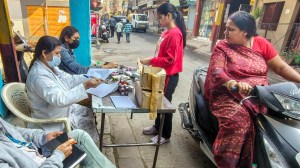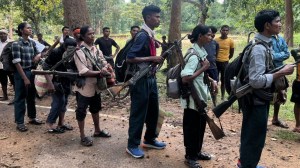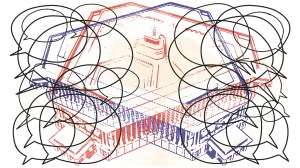The Rajya Sabha undone
A study of the Rajya Sabha membership for half a century 1952-2002 shows that before 1989 only 3 per cent of the members came from outside...

A study of the Rajya Sabha membership for half a century 1952-2002 shows that before 1989 only 3 per cent of the members came from outside the state they got elected from. In 1989 when the V.P. Singh government came to power, this percentage increased to nine. This indicated a significant change not merely in the future course of Centre-state relations but in the very nature of political competition in the states.
It boils down to this: from the 1990s, nearly one out of every 10 members elected from a particular state has not belonged to that state. The member has fulfilled on paper the legal requirement of being 8216;8216;domiciled8217;8217; in the state. But in reality, he or she has hailed from some other state. It was a game almost all political parties played to give their members a backdoor entry to Parliament. This came in handy to senior or important leaders. Even those defeated in the Lok Sabha election, like Finance Minister Jaswant Singh and BJP General Secretary Pramod Mahajan, could, in this manner, find a berth in the Rajya Sabha.
Once this route was discovered, the moneybags took over. Even a few crores of rupees was considered a cheap price to pay for membership of Parliament. Secret ballot helped in buying votes. Often loyal party nominees lost to the rich. Winning elections 8212; by hook or crook 8212; was all that mattered.
It is true that the Representation of the People Amendment Bill which Parliament has recently passed makes voting open, instead of election by secret ballot. But the Bill is not confined to the mode of voting alone. It has gone beyond that, disfiguring the complexion of the Rajya Sabha which, the Constitution describes as the Council of States. The Bill has deleted the 8216;8216;domicile8217;8217; clause to make it possible for a state assembly to elect an outsider. Thus, an illegal practice has been legalised for political gains.
This mutilation of the Constitution, both in letter and spirit, has been carried out despite advice to the contrary from the National Commission for Reviewing the Working of the Constitution. It had recommended that the 8216;8216;domicile8217;8217; qualification, which made a person eligible to contest the Rajya Sabha election from a state, should not be done away with. Any such move, the Commission warned, would adversely affect the federal character of the Council of States.
The Bill passed by Parliament violates the basic structure of the Constitution. The Constitution framers8217; intention was to make the Upper House represent all the states. Under the Bill, all the Rajya Sabha members can technically be from one state. Another violation of the basic structure of the Constitution is the change in the spirit of Schedule IV which lists the number of seats for each state in the Rajya Sabha. People from outside the state will also now fill these seats. An outsider can never be a true representative of the state.
But political considerations have made the parties blind to these realities. They have preferred gerrymandering to a state8217;s say. What was actually needed was a Bill to further strengthen the 8216;8216;domicile clause8217;8217; so as to protect states8217; representation. The Bill, on the other hand, has stalled the legitimate expression of plurality within the political system.
If one were to go back to the debate on the Upper House in the Constituent Assembly, one would see how keen our forefathers were for 8216;8216;the state perspective8217;8217; to be articulated at the central level. They had in view a federal structure which would reflect the diversity that the different states represented. One member even pleaded for incorporating the principle of equality among the states. The argument was: since the Council of States was going to represent the states it was only fair that all units were equally represented.
The debate in the Constituent Assembly also indicates how the Council of States was given special powers to make laws on subjects in the State List on the grounds of 8216;8216;national importance8217;8217;. This will have to be changed because the character of the Council of States under the Bill has changed. Surprisingly, the government is not saying anything on this matter. If challenged, the Supreme Court may even throw out this Bill.
The Court may find it equally difficult to approve of the decision to restore the 8216;8216;single directive8217;8217; which makes it mandatory to seek the government8217;s permission before conducting a raid, search or inquiry against civil servants of the rank of joint secretary and above. During the hearing of the hawala case, the Supreme Court had done away with this practice. Through the Central Vigilance Commission Bill, already passed by Lok Sabha, the government has got back the clout of granting such permission which it has often misused in the past. The Rajya Sabha can still rectify this mistake.
This present Bill relating to vigilance takes us back to the bad old days when pliable officers enjoyed the government8217;s protection because of their nexus with ministers or politicians. In the states, the practice has played havoc with a clutch of senior officials aligning themselves with chief ministers for personal favours or for the money they accumulate by occupying a particular position.
If crusaders, socialists and do-gooders cave in, there will be very little realisation of what is wrong. During the Emergency, for many a public functionary, the dividing line between right and wrong, moral and immoral ceased to exist. It is sad that most politicians today have turned out to be opportunists.
- 01
- 02
- 03
- 04
- 05































